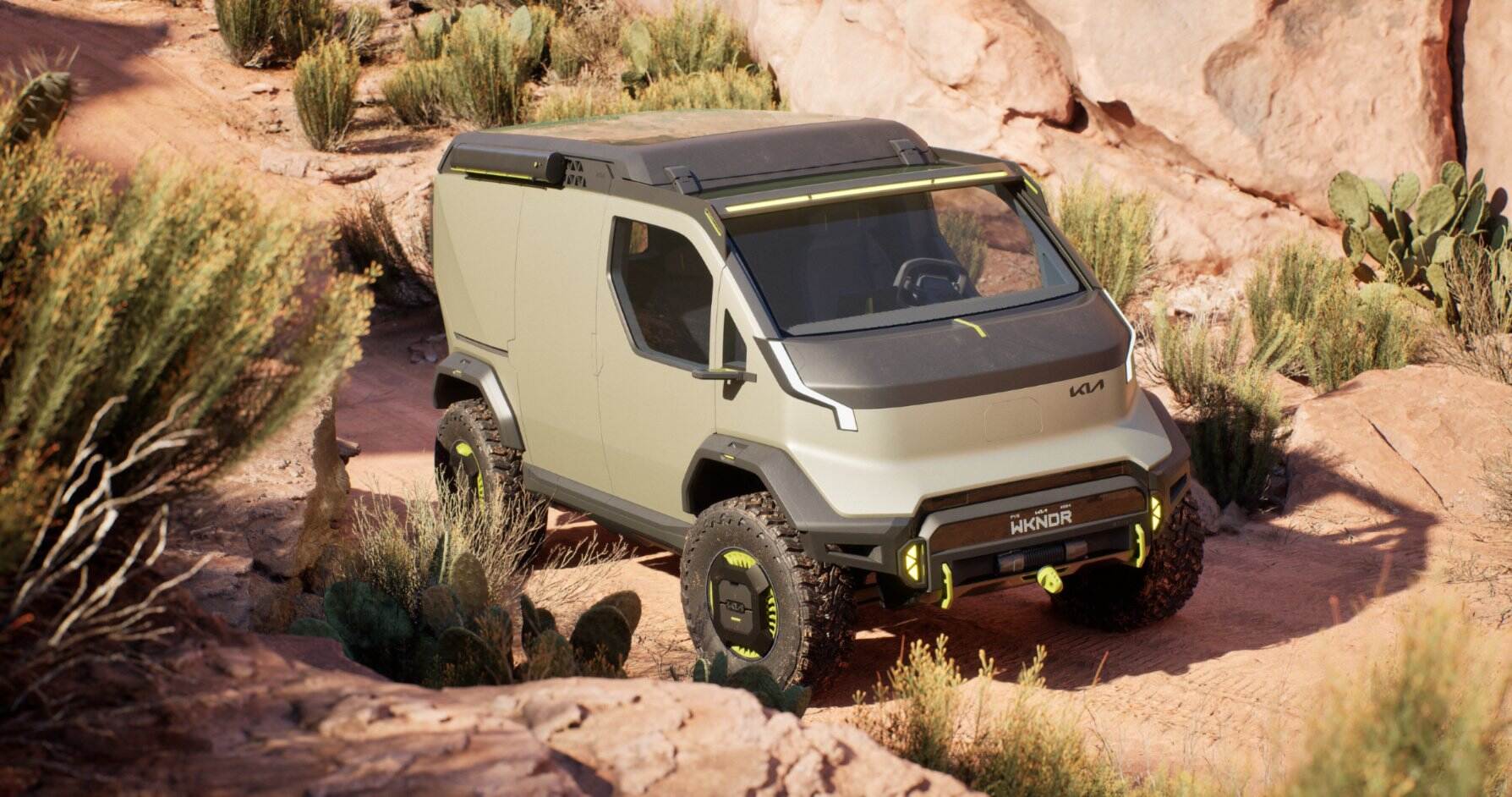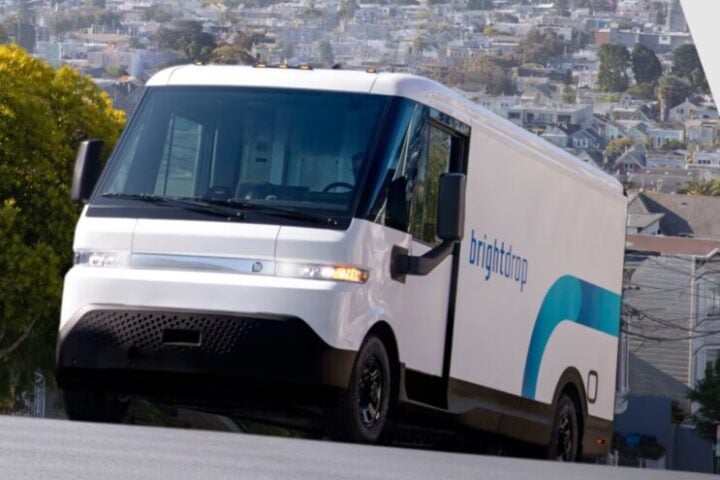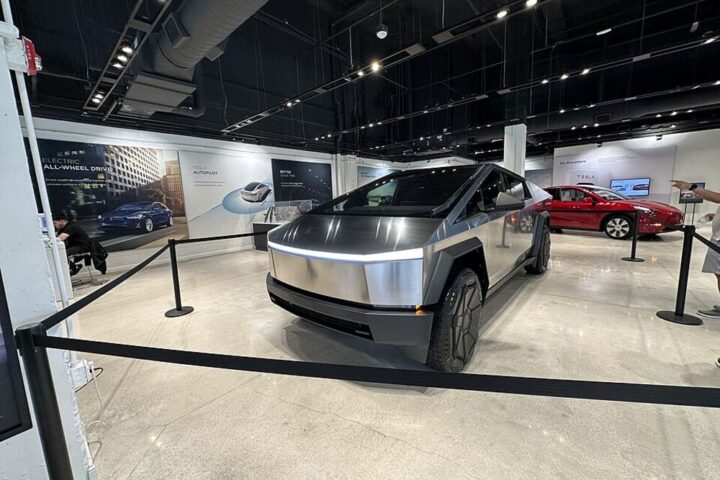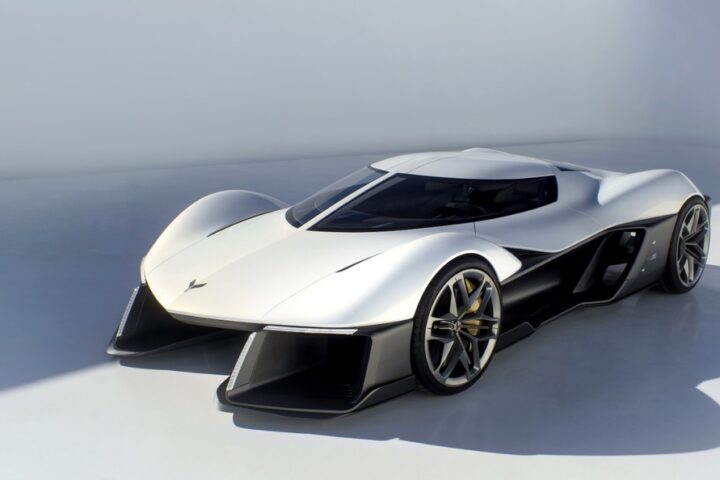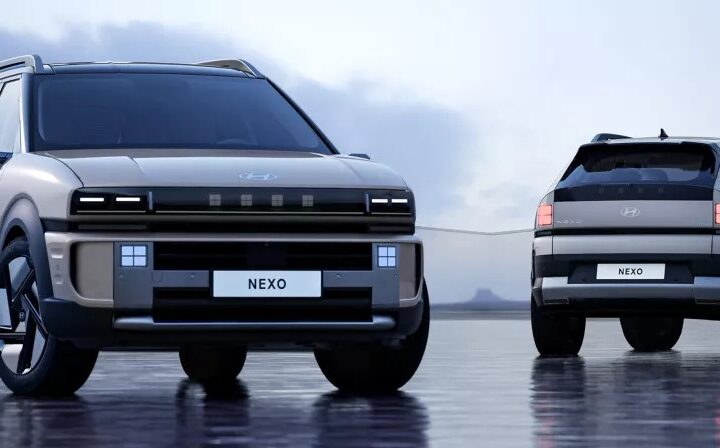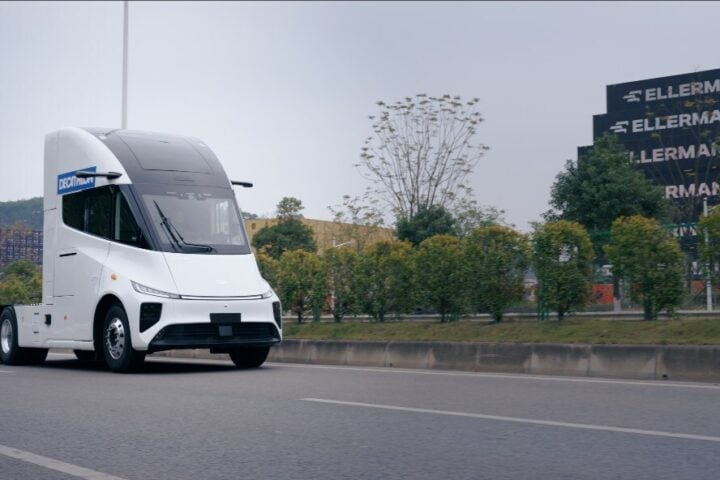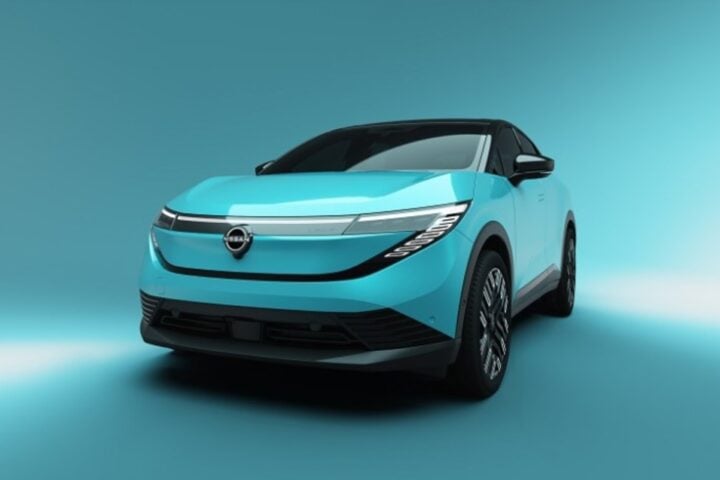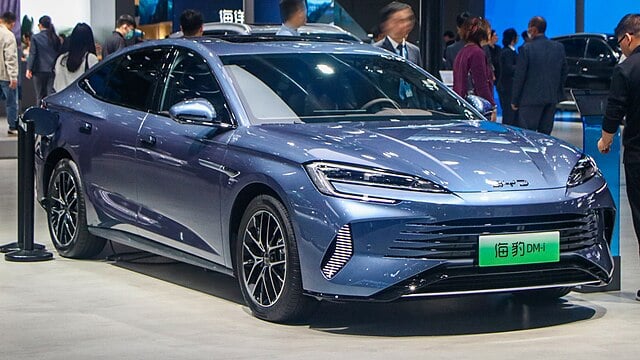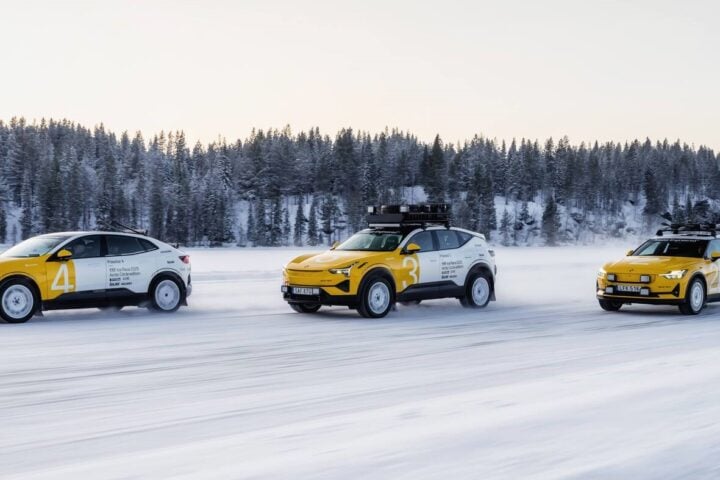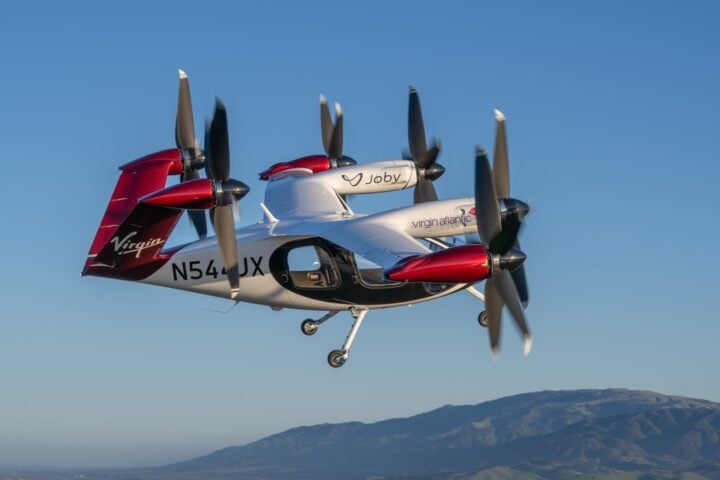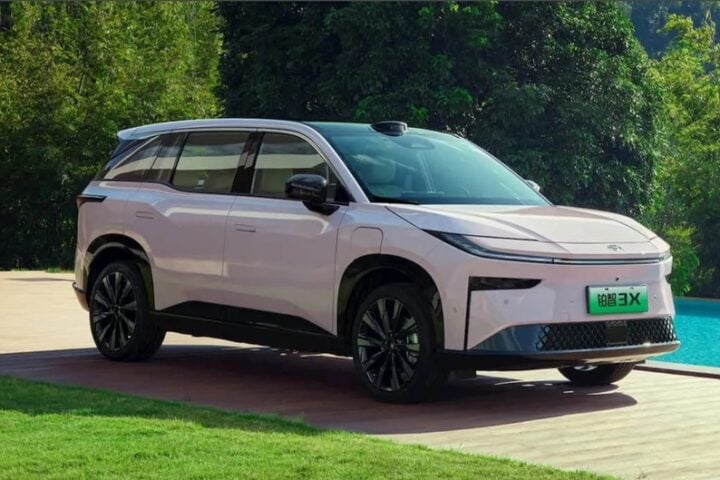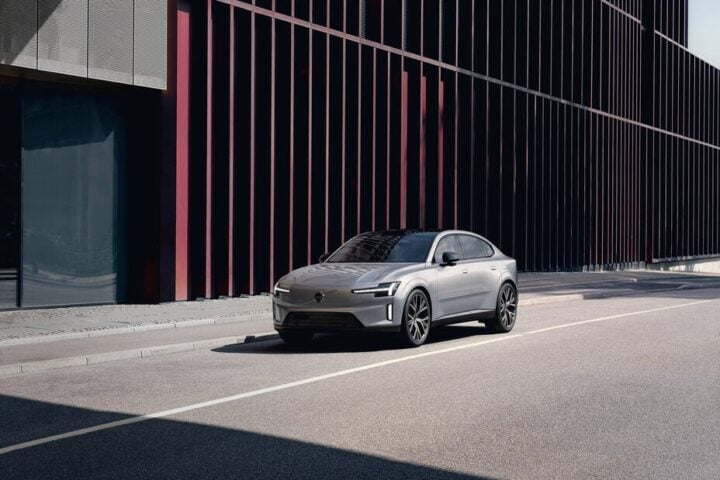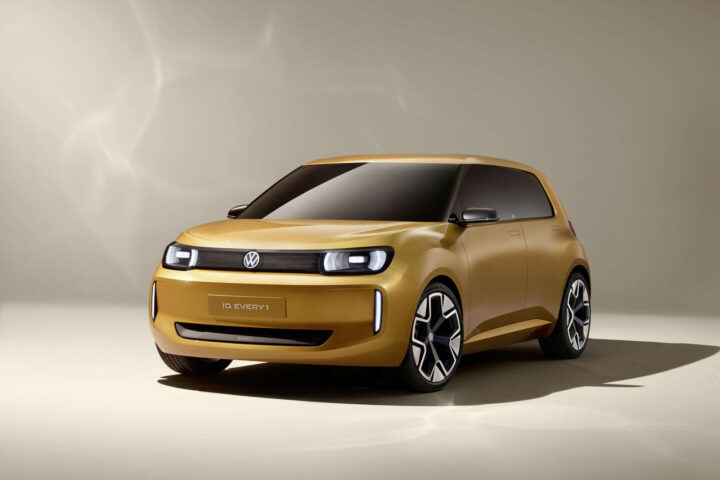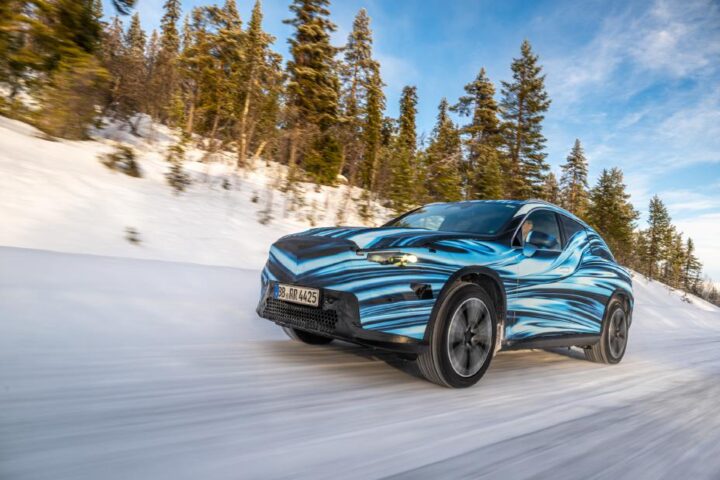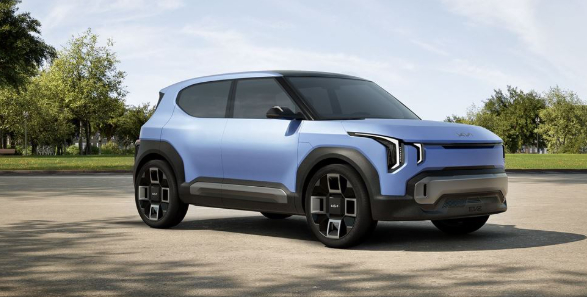Off-grid adventures meet electric mobility with Kia’s PV5 WKNDR concept, showcased at SEMA 2024 in Las Vegas. This modular electric van merges commercial practicality with weekend warrior capabilities through specific technical innovations.
Technical Specifications and Engineering:
The PV5 WKNDR uses a hybrid electromagnetic and mechanical coupling system for its interchangeable pods. These utility modules connect to a fixed driver cab, enabling quick conversions between delivery, passenger, and recreational configurations.
Nir Kahn, Director of Design at Plasan, notes:”Modularity, when done well, is of great benefit to manufacturers, and this is no different with EVs. There is perhaps more opportunity for it, because much of the hardware can be common for a broader range of applications, with only battery size and software differentiating between base vehicles and more powerful premium ones. “
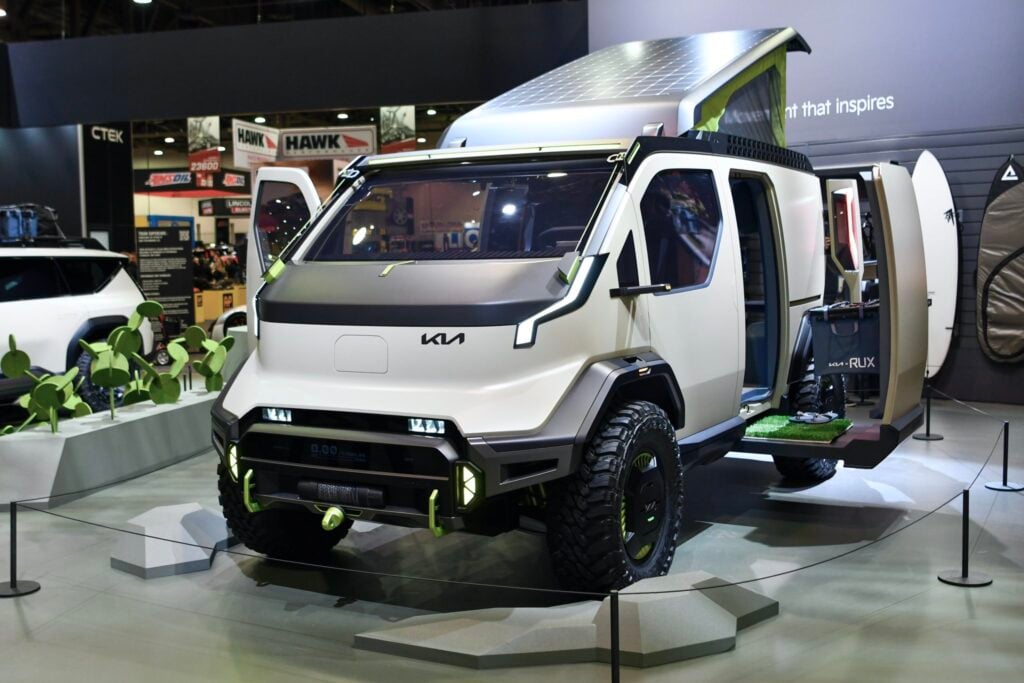
Off-Road Capabilities
- Raised suspension system (specific height data pending)
- Oversized all-terrain tires
- Front-mounted winch with digital weight display
- Integrated air compressor for tire pressure adjustment
Power Generation Systems The van incorporates multiple power sources:
- Roof-mounted solar panels (output specifications forthcoming)
- “Hydro turbine” wheels that generate electricity through:
- Wind energy while stationary
- Water flow when near streams
- Independent rotation system separate from drive wheels
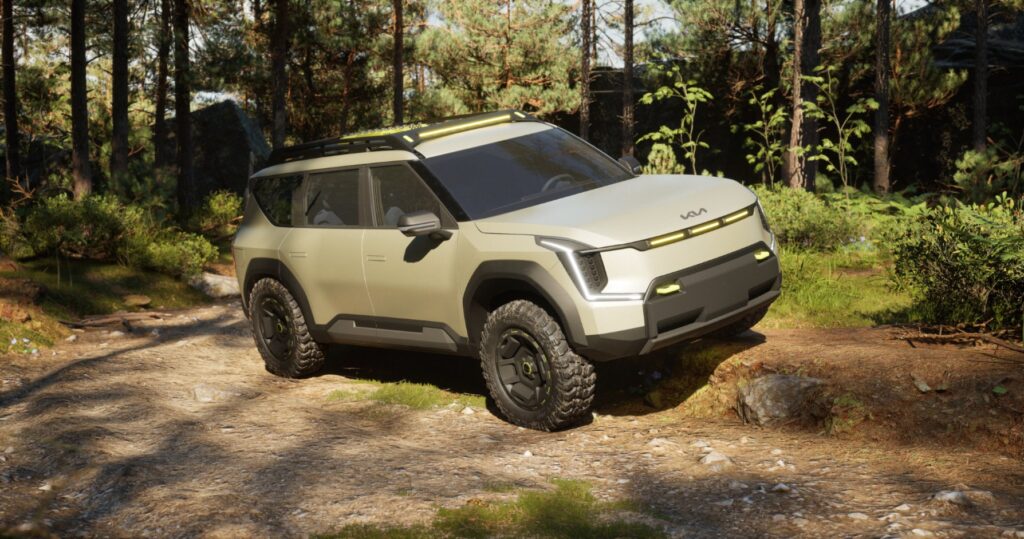
Similar Posts:
Interior Engineering: The modular interior features:
- Convertible co-driver seat with coffee table functionality
- Wall-mounted fold-out bench seats
- Integrated mounting rack system
- Pop-up camper roof mechanism
- Slide-out “Gear Head” storage pod (driver’s side mounted)
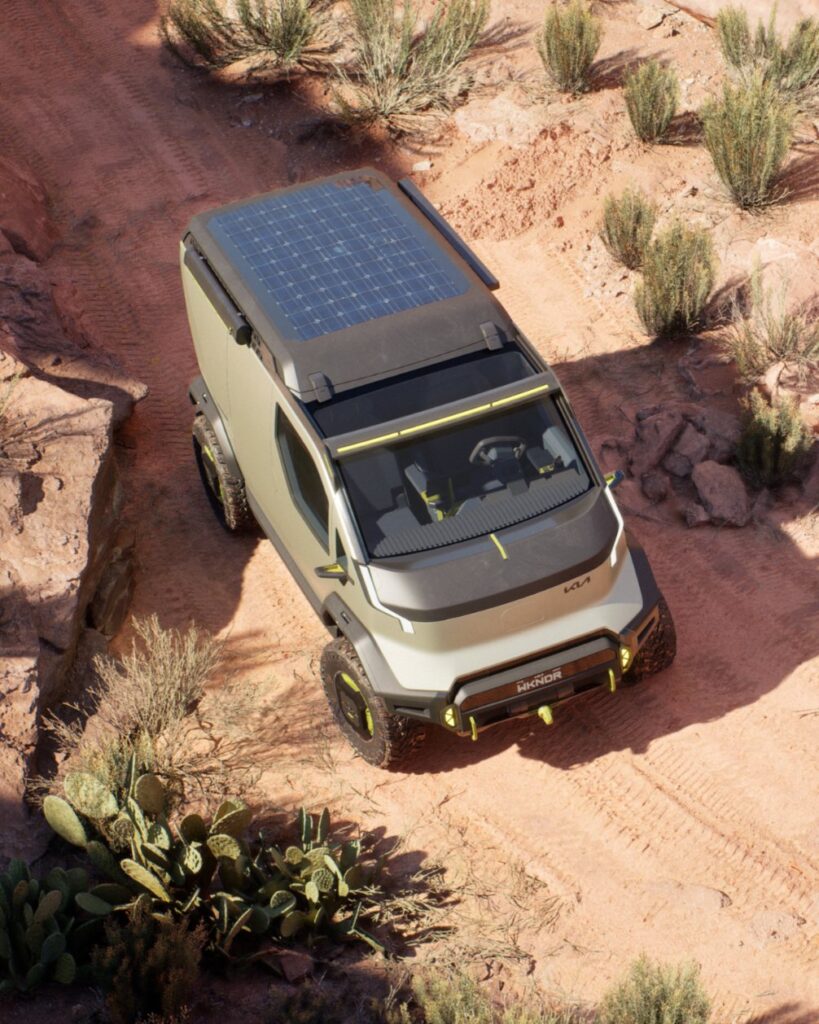
Production Plans:
Kia’s dedicated PBV factory in South Korea targets:
- Production start: 2025
- Annual capacity: 150,000 units
- Initial focus: Commercial variants
- Recreational versions: Timeline pending
Global Market Insights reports that the electric all-terrain vehicle (ATV) market was valued at $27.9 million in 2023 and is projected to grow at a compound annual growth rate (CAGR) of over 17% from 2024 to 2032.
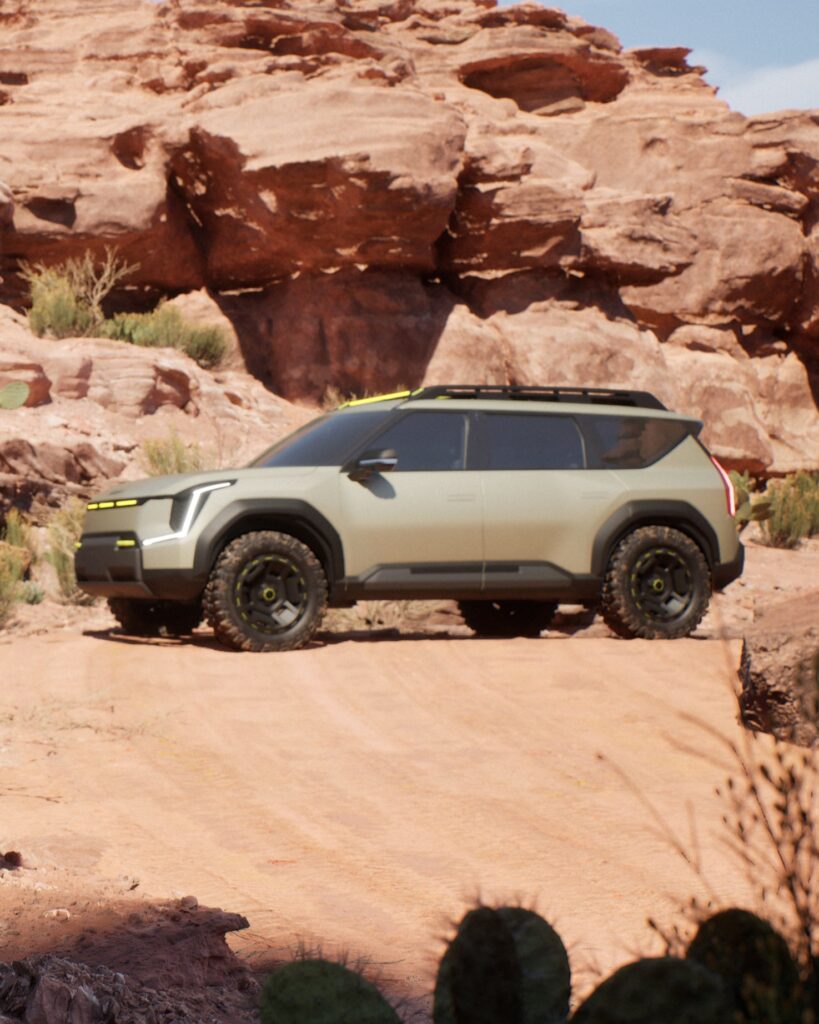
Environmental Impact Research by the Clean Vehicle Coalition indicates:
- Lower lifetime emissions compared to diesel vans
- Energy recovery potential through integrated generation systems
- Recyclable components in modular design
Critical Considerations
- Battery range specifications remain unannounced
- Cold weather performance of electromagnetic coupling
- Pod switching infrastructure requirements
- Real-world durability of modular components
The PV5 WKNDR combines emerging electric vehicle technologies with practical adventure capabilities. As development continues, Kia faces engineering challenges in balancing modularity with durability for both commercial and recreational use.
